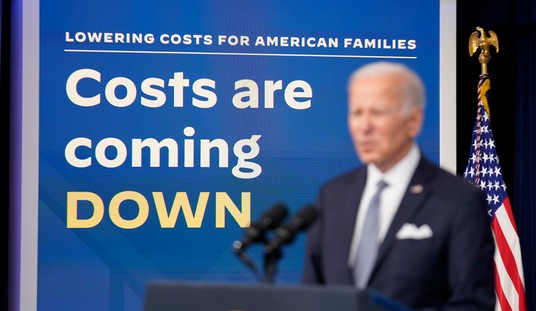Since one of my functions is editor for Townhall Finance, I get to look through quite a few news stories. I mostly look at Reuters and the Associated Press throughout the day to look for stories that are appropriate for the home page of TownhallFinance.com. But I look too for stories that I might write about.
Here are some headlines that have grabbed my attention recently:
New York banking regulator probes PwC, Promontory
Bayer AG comes under investigation in China
Germany, Finland, query Commission's planned role in bank decisions
In post-Lehman clean-up, top banker prosecutions stumble
House Republicans question SEC oversight of private equity funds
Sales tax hike will add $61 billion to household burden: Japan government panel
Ex-RBS trader in Hong Kong sentenced to 50 months in jail
UAW pushes VW to recognize union as rep for Tennessee workers
Judge refuses to block new meat labeling rules
U.S. judge hears chorus of complaints over $7.2 billion credit card pact
JPMorgan to spend $4 billion on compliance and risk controls: WSJ
Central bankers, brokers snap at SEC's money-market proposals
All these are stories that just happened to end up in my feed, to sort through, process and either put on the home page or write about.
And what they all have in common is how ubiquitous governments, quasi-governments and special interests are in the news of the day.
I was jarred into action by the very first headline:
New York banking regulator probes PwC, Promontory
The case is one in which, as near as I can understand it, a bank hired PwC, a well-known consultancy, to review their transactions and to advise on the legality of those transactions because the state of New York was investigating the bank. To some extent the hire of PwC by the bank was required by the state so the bank could better understand how to comply with the law that the state of New York imposed upon the bank.
Recommended
That tells you how complex rules and regulations have become. You need consultants in order to tell you how to comply with them.
Generally these consultants make recommendation on how to comply with rules, regulations and laws that govern their industry, laws imposed on them by the federal or state governments.
But what happens when the government doesn’t like the outcome of the consultants’ investigations?
As Reuters explains it: “The subpoenas, issued by the New York State Department of Financial Services, are part of a probe of the independence of consultants retained by banks, often at the behest of regulators.”
So it’s a case of regulators investigating consultants who are hired by targets of probes that are initiated by regulators who want to know if consultants are working for the company or for the state?
If you’re confused, let me enlighten you.
The government- state, local, federal and world, which are all the same really- is all- powerful today.
The only interests that need to be protected are those of the government and their special interests—and there’s a vast industry built around protecting their interests.
Used to be that we could count on government to be a fair arbiter between various sections of the country.
But not anymore.
Edward Snowden, the spy who went back to the cold of Moscow after turning on the NSA, for example, didn’t work for the government per se. He worked for a consultant. Under supervision of the government.
But my worry isn’t just about the overtly coercive power of the government through it spy agencies or their outsourcers or consultants. It’s about something that’s far more subtle:
PwC in December of 2012 released through its London office a report that new fossil fuel exploration could revolutionize the energy market.
Amongst the report findings were:
·Global shale oil production has the potential to reach up to 14 million barrels of oil per day by 2035; this amounts to 12% of the world’s total oil supply.
·This increase could reduce oil prices in 2035 by around 25%-40%
·This could increase the level of global GDP in 2035 by around 2.3%-3.7%
·Large net oil importers such as India and Japan might see their GDP boosted by around 4%-7% by 2035, while the US, China, the Eurozone and the UK might gain by 2%-5% of GDP.
·Conversely, major oil exporters such as Russia and the Middle East could see a significant worsening of their trade balances by around 4%-10% of GDP
·It could also influence the dynamics of geopolitics as it increases energy independence for many countries and reduces the influence of OPEC.
·Lower than expected oil prices could also create long-term benefits for a wide range of businesses
As you can see, this report is chock full of bad news for statists, world government types, UN flunkies and those who think that international “law” should trump the sovereignty of our own country.
This could be disastrous for those in government who want the country—countries?-- more dependent on government intervention.
So you can see why the state of New York, acting in cooperation with the SEC, on behalf of the Obama administration, in conjunction with the UAW, at the behest of the UN and, as partly-owned subsidiary of the Wild Planet environmentalists, the NAACP, ACLU, NSA, CBSNews, Google, Facebook and Microsoft, needs to get to the bottom of why in the heck they didn’t have access to every account, transaction and email address of the subject bank through PwC’s investigation.
The government does have the power to punish.
The implication here is that the state’s interests must be protected even at the expense of the minor things like, the right to unlawful search and seizure. In fact, it’s assumed now that the state’s interests operate independently and are superior to individual interests. Step out of line and you’ll be made to pay.
It’s commonplace in the financial industry that nobody wants to run afoul of the Securities Exchange Commission. Or bank examiners. Or any other regulators who have the enforcement power to punish.
Even more it’s assumed that these regulatory bodies are used as blunt instruments by the state in order to punish their political opponents. While it’s naïve to believe that regulatory bodies were never used in the past to punish political opponents, the practice today seems so commonplace now that there’s hardly an outcry about it. Government sticks it’s hand out and expects to get greased.
It’s really no different than the fruit stand operator in Tunisia who was shut down by the police for not having the proper license. He walked in front of a government building and set himself on fire in protest, thereby starting the Arab Spring.
Governments everywhere around the world seem to be pushing all of us fruit stand owners around.
It’s time for fruit stand operators to start pushing back.

























Join the conversation as a VIP Member